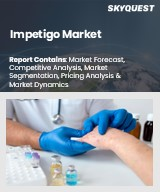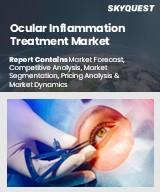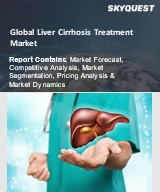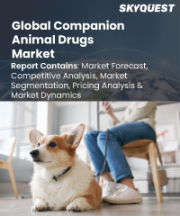
|
시장보고서
상품코드
1675321
경구 항생제 시장 : 약제 클래스별, 용도별, 약제 원료별, 항균 스펙트럼별, 약제 유형별, 지역별(2025-2033년)Oral Antibiotics Market Report by Class, Application (Community-acquired Respiratory Tract Infections, Urinary Tract Infections, Dental and Others), Drug Origin, Spectrum of Activity, Drug Type, and Region 2025-2033 |
||||||
세계의 경구 항생제 시장 규모는 2024년에 210억 7,800만 달러에 달했습니다. 향후 IMARC Group은 시장이 2033년까지 279억 4,930만 달러에 달하며, 2025-2033년에 3.18%의 성장률(CAGR)을 보일 것으로 예측하고 있습니다. 감염증의 만연, 고령자 인구의 증가, 약제 내성균에 대한 효과적인 치료에 대한 수요 증가, 맞춤형 의료와 유전체학의 동향 증가 등이 시장을 촉진하는 주요 요인입니다.
경구 항생제는 주로 세균의 증식을 억제하거나 체내에서 세균을 제거하기 위해 처방되는 의약품입니다. 보통 입으로 복용하며, 광범위한 의료 적응증에 이용되고 있습니다. 경구 항생제로 치료할 수 있는 감염증의 유형은 피부, 귀, 목, 인후, 요로 감염과 같은 일반적인 질환부터 폐렴과 같은 복잡한 질환까지 다양합니다. 이러한 항생제는 여러 유형로 분류되며, 각기 다른 작용기전을 가지고 있습니다. 흔히 처방되는 클래스에는 페니실린계, 플루오로퀴놀론계, 테트라사이클린계, 마크로리드계 등이 있습니다. 각 계열은 서로 다른 유형의 박테리아를 표적으로 삼고, 특정 세균 감염에 더 효과적입니다. 예를 들어 페니실린계는 연쇄상구균 감염에 널리 사용되며, 플루오로퀴놀론계는 특정 그람음성균에 대항하기 위해 선택됩니다. 그 결과, 경구 항생제는 현대 헬스케어의 중요한 요소이며, 많은 세균 감염의 성공적인 치료를 위해 의료 전문가들이 널리 처방하고 있습니다.
경구 항생제 시장 동향 :
감염성 질환의 유병률 증가와 이러한 질병에 대한 치료 옵션에 대한 대중의 인식이 높아짐에 따라 시장 성장을 지원하는 주요 요인입니다. 또한 이러한 감염성 질환에 취약한 노인 인구 증가도 시장 성장을 가속하는 주요 요인으로 작용하고 있습니다. 또한 항생제의 보급을 촉진하고 항생제 내성의 출현을 늦추고 이러한 약물의 효과를 더 오래 지속시키는 것을 목표로 하는 항생제 관리 프로그램이 증가하고 있습니다. 이에 따라 항생제 내성 문제가 심각해짐에 따라 연구자들과 제약사들은 기존 항생제 계열을 변경하고 다제내성균에 대응할 수 있는 새로운 항생제를 개발할 수밖에 없어 제품 채택 속도가 빨라지고 있습니다. 또한 주요 제약사 및 연구기관들은 박테리아의 내성 패턴을 예측하고, 약물과 박테리아의 상호작용을 이해하며, 신규 항생제 발견을 가속화하기 위해 인공지능(AI)과 머신러닝(ML)을 신약개발 과정에 활용하고 있습니다. 이에 따라 치료 효과를 높이고 부작용을 최소화하기 위해 환자의 유전적 체질 등의 요인을 고려하여 환자 개개인에 맞는 항생제 치료를 하는 맞춤의료와 유전체학의 부상이 시장 성장을 가속하고 있습니다. 기타 요인으로는 약제 내성균에 대한 효과적인 치료에 대한 수요 증가, 헬스케어 인프라 개선, 새로운 경구 항생제의 지속적인 출시, 연구개발(R&D) 활동에 대한 막대한 투자 등이 향후 수년간 시장 성장을 가속할 것으로 예상됩니다.
이 보고서에서 다룬 주요 질문
- 세계 경구 항생제 시장은 지금까지 어떻게 추이해 왔는가?
- 세계 경구 항생제 시장의 성장 촉진요인, 저해요인, 기회요인은 무엇인가?
- 각 촉진요인, 억제요인, 기회가 세계 경구 항생제 시장에 미치는 영향은?
- 주요 지역 시장은?
- 가장 매력적인 경구 항생제 시장은 어느 국가인가?
- 클래스별 시장 분석은?
- 경구 항생제 시장에서 가장 매력적인 클래스는?
- 적응증별 시장 분석은?
- 경구 항생제 시장에서 가장 매력적인 적응증은?
- 의약품 원료별 시장 현황은?
- 경구 항생제 시장에서 가장 매력적인 원료의약품은?
- 항균 스펙트럼에 따른 시장 분석은?
- 경구 항생제 시장에서 가장 매력적인 항균 스펙트럼은?
- 약제 유형별 시장 현황은?
- 경구 항생제 시장에서 가장 매력적인 약물 유형은?
- 세계 경구 항생제 시장의 경쟁 구도는?
- 세계 경구 항생제 시장의 주요 기업은?
목차
제1장 서문
제2장 조사 범위와 조사 방법
- 조사의 목적
- 이해관계자
- 데이터 소스
- 1차 정보
- 2차 정보
- 시장 추정
- 보텀업 어프로치
- 톱다운 어프로치
- 조사 방법
제3장 개요
제4장 서론
- 개요
- 주요 업계 동향
제5장 세계의 경구 항생제 시장
- 시장 개요
- 시장 실적
- COVID-19의 영향
- 시장 예측
제6장 시장 내역 : 클래스별
- 베타 락탐 및 베타 락타마아제 저해제
- 주요 부문
- 페니실린
- 세팔로스포린
- 기타
- 주요 부문
- 퀴놀론
- 마크로라이드
- 기타
제7장 시장 내역 : 적응별
- 시중 감염성 호흡기 감염증(CARTI)
- 주요 부문
- 상기도 감염증(URTI)
- 하기도 감염증(LRTI)
- 주요 부문
- 요로감염증(UTI)
- 치과
- 주요 부문
- 병제
- 단일 제제
- 주요 부문
- 기타
제8장 시장 내역 : 약제 원료별
- 천연
- 반합성
- 합성
제9장 시장 내역 : 항균 스펙트럼별
- 광역
- 협역
제10장 시장 내역 : 약제 유형별
- 브랜드
- 제네릭
제11장 시장 내역 : 지역별
- 북미
- 미국
- 캐나다
- 아시아태평양
- 중국
- 일본
- 인도
- 한국
- 호주
- 인도네시아
- 기타
- 유럽
- 독일
- 프랑스
- 영국
- 이탈리아
- 스페인
- 러시아
- 기타
- 라틴아메리카
- 브라질
- 멕시코
- 기타
- 중동 및 아프리카
- 시장 내역 : 국가별
제12장 촉진요인·억제요인·기회
- 개요
- 촉진요인
- 억제요인
- 기회
제13장 밸류체인 분석
제14장 Porter's Five Forces 분석
- 개요
- 바이어의 교섭력
- 공급 기업의 교섭력
- 경쟁의 정도
- 신규 진출업체의 위협
- 대체품의 위협
제15장 가격 분석
제16장 경쟁 구도
- 시장 구조
- 주요 기업
- 주요 기업의 개요
- Bayer AG
- Cipla Inc
- Gilead Sciences Inc
- Janssen Inc.(Johnson & Johnson Services, Inc)
- Pfizer Inc.
- Roche Holding AG
- Sun Pharmaceutical Industries Ltd
- Teva Pharmaceutical Industries Ltd.
The global oral antibiotics market size reached USD 21,078.0 Million in 2024. Looking forward, IMARC Group expects the market to reach USD 27,949.3 Million by 2033, exhibiting a growth rate (CAGR) of 3.18% during 2025-2033. The increasing prevalence of infectious diseases, expanding geriatric population, escalating demand for effective treatments against drug-resistant bacteria, and the growing trend of personalized medicine and genomics represent some of the key factors driving the market.
Oral antibiotics are pharmaceutical agents primarily prescribed to inhibit bacterial growth or eliminate bacteria from the body. They are usually taken by mouth and are utilized across a wide range of medical applications. The types of infections treated by oral antibiotics vary and include common ailments such as skin, ear, throat, and urinary tract infections and more complex conditions like certain types of pneumonia. These antibiotics are categorized into different classes, each with a distinct mechanism of action. Some commonly prescribed classes include penicillins, fluoroquinolones, tetracyclines, and macrolides. Each class targets different types of bacteria and is more effective for specific bacterial infections. For instance, penicillins are widely used for streptococcal infections, while fluoroquinolones may be chosen to combat certain gram-negative bacteria. As a result, oral antibiotics are a key element of modern healthcare and are widely prescribed by healthcare professionals to enable the successful treatment of numerous bacterial infections.
Oral Antibiotics Market Trends:
The increasing prevalence of infectious diseases and the rising public awareness about the available treatment options for these conditions represent the primary factors supporting market growth. Moreover, the expanding geriatric population that is more susceptible to developing such infections is another major factor fueling the market growth. In addition, there has been a rise in antibiotic stewardship programs aimed at encouraging the widespread use of antibiotics, slowing down the emergence of antibiotic resistance, and ensuring the prolonged effectiveness of these drugs. Along with this, the growing issue of antibiotic resistance has compelled researchers and pharmaceutical companies to modify existing classes and develop new antibiotics capable of treating multi-drug resistant bacteria, thereby accelerating the product adoption rate. Furthermore, the leading pharmaceutical companies and research institutes are leveraging artificial intelligence (AI) and machine learning (ML) in the drug discovery process to predict bacterial resistance patterns, understand drug-bacteria interactions, and expedite the discovery of novel antibiotics. In line with this, the emergence of personalized medicine and genomics, which involves tailoring antibiotic treatment to individual patients by considering factors such as their genetic makeup to enhance treatment effectiveness and minimize side effects, has catalyzed market growth. Other factors, including escalating demand for effective treatments against drug-resistant bacteria, improving healthcare infrastructure, the continual launch of novel oral antibiotics, and heavy investments in research and development (R&D) activities, are also anticipated to propel the market growth in the coming years.
Key Market Segmentation:
Class Insights:
- Beta Lactam and Beta Lactamase Inhibitors
- Penicillin
- Cephalosporin
- Others
- Quinolone
- Macrolide
- Others
Application Insights:
- Community-acquired Respiratory Tract Infections (CARTIs)
- Upper Respiratory Tract Infections (URTI)
- Lower Respiratory Tract Infections (LRTIs)
- Urinary Tract Infections (UTIs)
- Dental
- Combination
- Monotherapies
- Others
Drug Origin Insights:
- Natural
- Semisynthetic
- Synthetic
Spectrum of Activity Insights:
- Broad-spectrum Antibiotic
- Narrow Spectrum Antibiotic
Drug Type Insights:
- Branded
- Generics
Regional Insights:
- North America
- United States
- Canada
- Asia-Pacific
- China
- Japan
- India
- South Korea
- Australia
- Indonesia
- Others
- Europe
- Germany
- France
- United Kingdom
- Italy
- Spain
- Russia
- Others
- Latin America
- Brazil
- Mexico
- Others
- Middle East and Africa
- The report has also provided a comprehensive analysis of all the major regional markets, which include North America (the United States and Canada); Asia-Pacific (China, Japan, India, South Korea, Australia, Indonesia, and others); Europe (Germany, France, the United Kingdom, Italy, Spain, Russia, and others); Latin America (Brazil, Mexico, and others); and the Middle East and Africa. According to the report, Asia-Pacific was the largest market for oral antibiotics. Some of the factors driving the Asia-Pacific oral antibiotics market included its aging population, growing burden of infectious diseases, high healthcare expenditure, the presence of various key players, etc.
Competitive Landscape:
- The report has also provided a comprehensive analysis of the competitive landscape in the global oral antibiotics market. Detailed profiles of all major companies have been provided. Some of the companies covered include Bayer AG, Cipla Inc., Gilead Sciences Inc., Janssen Inc. (Johnson & Johnson Services, Inc.), Pfizer Inc., Roche Holding AG, Sun Pharmaceutical Industries Ltd., Teva Pharmaceutical Industries Ltd., etc. Kindly note that this only represents a partial list of companies, and the complete list has been provided in the report.
Key Questions Answered in This Report:
- How has the global oral antibiotics market performed so far, and how will it perform in the coming years?
- What are the drivers, restraints, and opportunities in the global oral antibiotics market?
- What is the impact of each driver, restraint, and opportunity on the global oral antibiotics market?
- What are the key regional markets?
- Which countries represent the most attractive oral antibiotics market?
- What is the breakup of the market based on the class?
- Which is the most attractive class in the oral antibiotics market?
- What is the breakup of the market based on the application?
- Which is the most attractive application in the oral antibiotics market?
- What is the breakup of the market based on the drug origin?
- Which is the most attractive drug origin in the oral antibiotics market?
- What is the breakup of the market based on the spectrum of activity?
- Which is the most attractive spectrum of activity in the oral antibiotics market?
- What is the breakup of the market based on the drug type?
- Which is the most attractive drug type in the oral antibiotics market?
- What is the competitive structure of the global oral antibiotics market?
- Who are the key players/companies in the global oral antibiotics market?
Table of Contents
1 Preface
2 Scope and Methodology
- 2.1 Objectives of the Study
- 2.2 Stakeholders
- 2.3 Data Sources
- 2.3.1 Primary Sources
- 2.3.2 Secondary Sources
- 2.4 Market Estimation
- 2.4.1 Bottom-Up Approach
- 2.4.2 Top-Down Approach
- 2.5 Forecasting Methodology
3 Executive Summary
4 Introduction
- 4.1 Overview
- 4.2 Key Industry Trends
5 Global Oral Antibiotics Market
- 5.1 Market Overview
- 5.2 Market Performance
- 5.3 Impact of COVID-19
- 5.4 Market Forecast
6 Market Breakup by Class
- 6.1 Beta Lactam and Beta Lactamase Inhibitors
- 6.1.1 Market Trends
- 6.1.2 Key Segments
- 6.1.2.1 Penicillin
- 6.1.2.2 Cephalosporin
- 6.1.2.3 Others
- 6.1.3 Market Forecast
- 6.2 Quinolone
- 6.2.1 Market Trends
- 6.2.2 Market Forecast
- 6.3 Macrolide
- 6.3.1 Market Trends
- 6.3.2 Market Forecast
- 6.4 Others
- 6.4.1 Market Trends
- 6.4.2 Market Forecast
7 Market Breakup by Application
- 7.1 Community-acquired Respiratory Tract Infections (CARTIs)
- 7.1.1 Market Trends
- 7.1.2 Key Segments
- 7.1.2.1 Upper Respiratory Tract Infections (URTI)
- 7.1.2.2 Lower Respiratory Tract Infections (LRTIs)
- 7.1.3 Market Forecast
- 7.2 Urinary Tract Infections (UTIs)
- 7.2.1 Market Trends
- 7.2.2 Market Forecast
- 7.3 Dental
- 7.3.1 Market Trends
- 7.3.2 Key Segments
- 7.3.2.1 Combination
- 7.3.2.2 Monotherapies
- 7.3.3 Market Forecast
- 7.4 Others
- 7.4.1 Market Trends
- 7.4.2 Market Forecast
8 Market Breakup by Drug Origin
- 8.1 Natural
- 8.1.1 Market Trends
- 8.1.2 Market Forecast
- 8.2 Semisynthetic
- 8.2.1 Market Trends
- 8.2.2 Market Forecast
- 8.3 Synthetic
- 8.3.1 Market Trends
- 8.3.2 Market Forecast
9 Market Breakup by Spectrum of Activity
- 9.1 Broad-spectrum Antibiotic
- 9.1.1 Market Trends
- 9.1.2 Market Forecast
- 9.2 Narrow Spectrum Antibiotic
- 9.2.1 Market Trends
- 9.2.2 Market Forecast
10 Market Breakup by Drug Type
- 10.1 Branded
- 10.1.1 Market Trends
- 10.1.2 Market Forecast
- 10.2 Generics
- 10.2.1 Market Trends
- 10.2.2 Market Forecast
11 Market Breakup by Region
- 11.1 North America
- 11.1.1 United States
- 11.1.1.1 Market Trends
- 11.1.1.2 Market Forecast
- 11.1.2 Canada
- 11.1.2.1 Market Trends
- 11.1.2.2 Market Forecast
- 11.1.1 United States
- 11.2 Asia-Pacific
- 11.2.1 China
- 11.2.1.1 Market Trends
- 11.2.1.2 Market Forecast
- 11.2.2 Japan
- 11.2.2.1 Market Trends
- 11.2.2.2 Market Forecast
- 11.2.3 India
- 11.2.3.1 Market Trends
- 11.2.3.2 Market Forecast
- 11.2.4 South Korea
- 11.2.4.1 Market Trends
- 11.2.4.2 Market Forecast
- 11.2.5 Australia
- 11.2.5.1 Market Trends
- 11.2.5.2 Market Forecast
- 11.2.6 Indonesia
- 11.2.6.1 Market Trends
- 11.2.6.2 Market Forecast
- 11.2.7 Others
- 11.2.7.1 Market Trends
- 11.2.7.2 Market Forecast
- 11.2.1 China
- 11.3 Europe
- 11.3.1 Germany
- 11.3.1.1 Market Trends
- 11.3.1.2 Market Forecast
- 11.3.2 France
- 11.3.2.1 Market Trends
- 11.3.2.2 Market Forecast
- 11.3.3 United Kingdom
- 11.3.3.1 Market Trends
- 11.3.3.2 Market Forecast
- 11.3.4 Italy
- 11.3.4.1 Market Trends
- 11.3.4.2 Market Forecast
- 11.3.5 Spain
- 11.3.5.1 Market Trends
- 11.3.5.2 Market Forecast
- 11.3.6 Russia
- 11.3.6.1 Market Trends
- 11.3.6.2 Market Forecast
- 11.3.7 Others
- 11.3.7.1 Market Trends
- 11.3.7.2 Market Forecast
- 11.3.1 Germany
- 11.4 Latin America
- 11.4.1 Brazil
- 11.4.1.1 Market Trends
- 11.4.1.2 Market Forecast
- 11.4.2 Mexico
- 11.4.2.1 Market Trends
- 11.4.2.2 Market Forecast
- 11.4.3 Others
- 11.4.3.1 Market Trends
- 11.4.3.2 Market Forecast
- 11.4.1 Brazil
- 11.5 Middle East and Africa
- 11.5.1 Market Trends
- 11.5.2 Market Breakup by Country
- 11.5.3 Market Forecast
12 Drivers, Restraints, and Opportunities
- 12.1 Overview
- 12.2 Drivers
- 12.3 Restraints
- 12.4 Opportunities
13 Value Chain Analysis
14 Porters Five Forces Analysis
- 14.1 Overview
- 14.2 Bargaining Power of Buyers
- 14.3 Bargaining Power of Suppliers
- 14.4 Degree of Competition
- 14.5 Threat of New Entrants
- 14.6 Threat of Substitutes
15 Price Analysis
16 Competitive Landscape
- 16.1 Market Structure
- 16.2 Key Players
- 16.3 Profiles of Key Players
- 16.3.1 Bayer AG
- 16.3.1.1 Company Overview
- 16.3.1.2 Product Portfolio
- 16.3.1.3 Financials
- 16.3.1.4 SWOT Analysis
- 16.3.2 Cipla Inc
- 16.3.2.1 Company Overview
- 16.3.2.2 Product Portfolio
- 16.3.2.3 Financials
- 16.3.2.4 SWOT Analysis
- 16.3.3 Gilead Sciences Inc
- 16.3.3.1 Company Overview
- 16.3.3.2 Product Portfolio
- 16.3.3.3 Financials
- 16.3.3.4 SWOT Analysis
- 16.3.4 Janssen Inc. (Johnson & Johnson Services, Inc)
- 16.3.4.1 Company Overview
- 16.3.4.2 Product Portfolio
- 16.3.5 Pfizer Inc.
- 16.3.5.1 Company Overview
- 16.3.5.2 Product Portfolio
- 16.3.5.3 Financials
- 16.3.5.4 SWOT Analysis
- 16.3.6 Roche Holding AG
- 16.3.6.1 Company Overview
- 16.3.6.2 Product Portfolio
- 16.3.6.3 Financials
- 16.3.7 Sun Pharmaceutical Industries Ltd
- 16.3.7.1 Company Overview
- 16.3.7.2 Product Portfolio
- 16.3.7.3 Financials
- 16.3.7.4 SWOT Analysis
- 16.3.8 Teva Pharmaceutical Industries Ltd.
- 16.3.8.1 Company Overview
- 16.3.8.2 Product Portfolio
- 16.3.8.3 Financials
- 16.3.8.4 SWOT Analysis
- 16.3.1 Bayer AG
Kindly note that this only represents a partial list of companies, and the complete list has been provided in the report.






